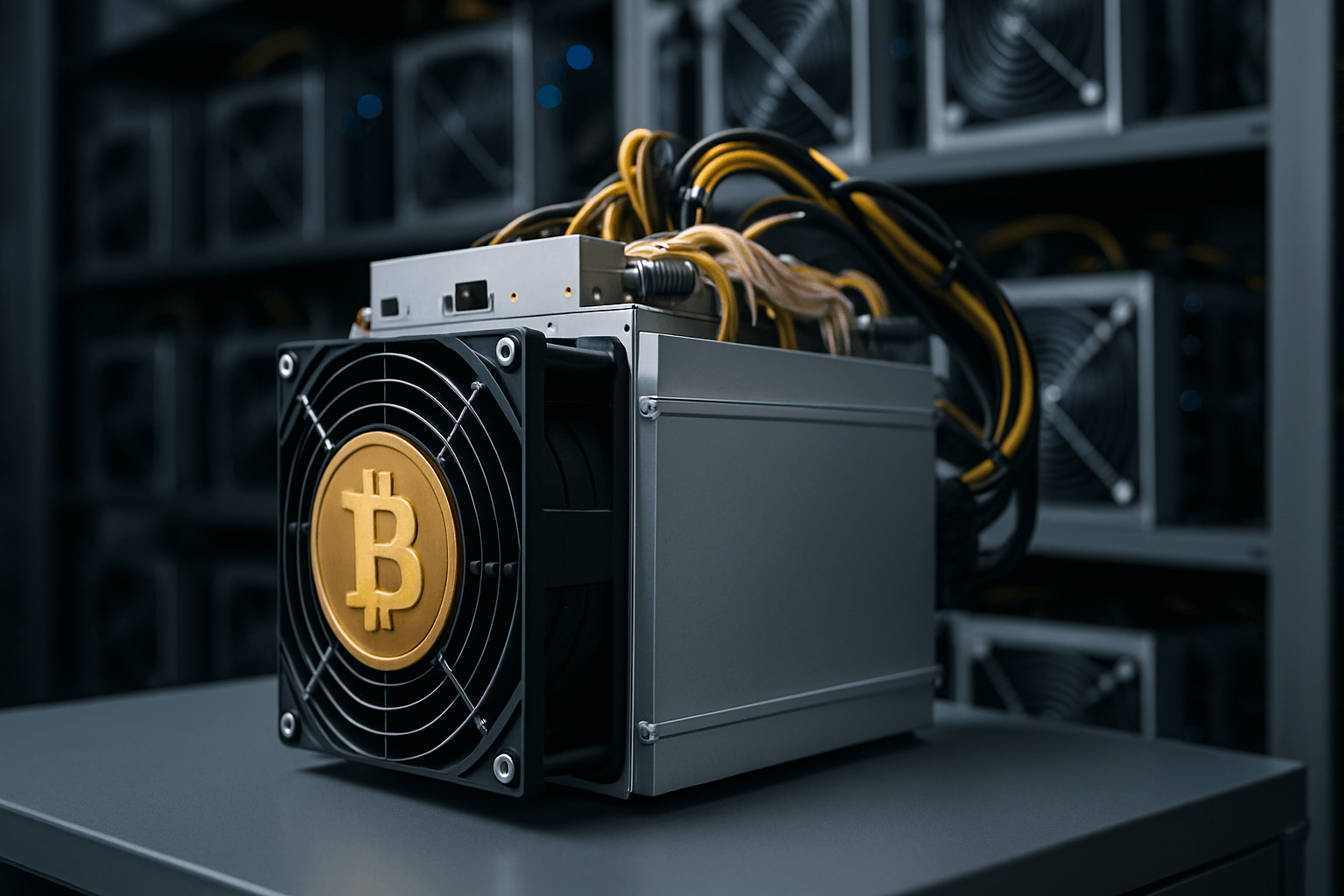Crypto & DeFi
What Are Crypto Loans and How Do They Work?
September 03, 2024
Crypto & DeFi
September 03, 2024

Learn all about crypto loans and how to get one.
Cryptocurrency adoption is skyrocketing, with an estimated 560 million owners globally. And as the crypto ecosystem expands, crypto loans are emerging as a powerful way to access funds while holding onto your digital assets. Cryptocurrencies such as Bitcoin, Ethereum, and Solana are being used to secure loans without having to sell.
So, if you're among those who own cryptocurrency and find yourself in need of a loan, using your crypto assets as collateral might be a good choice to obtain funding without selling your holdings. That's why it's crucial to understand how crypto lending works, the types of crypto loans available, and which crypto loan might be best suited for your needs. This guide will walk you through the essentials. Let's get to it.
A crypto loan is a financial product offered by lending platforms where your cryptocurrency serves as collateral for a loan. When you take out a crypto loan, your digital assets are pledged to secure the loan. If you fail to repay, the lender can seize and/or sell your collateral. This type of loan functions similarly to traditional secured loans but with unique features due to the nature of cryptocurrencies.
Crypto loans are versatile and can be used for various purposes, such as funding home renovations, starting a business, consolidating high-interest debt, and much more.
Related: 7 Exciting Real-World Use Cases of Crypto in 2025
The process works much like a traditional collateralized loan, where the value of your crypto assets determines the amount you can borrow. Crypto loans generally fall into two categories: collateralized and uncollateralized.
Collateralized Loans: These are secured loans where you pledge your cryptocurrency as collateral. If you fail to repay the loan, the lender can seize your collateral as payment. Many crypto lending platforms require over-collateralization, allowing you to borrow up to a certain percentage of your deposited collateral. This approach can help you secure better terms for your crypto loan by reducing the lender's risk.Click here to learn more about Collateralized Loans.
Uncollateralized Loans: These loans don't require collateral. Instead, approval depends on other factors that demonstrate your ability to repay, such as credit history. However, uncollateralized crypto loans are much less common and uncollateralized loans in general typically come with higher interest rates due to the increased risk for lenders.
When opting to leverage your cryptocurrency holdings through collateralized crypto lending, you'll be presented with two primary structures to consider:
Centralized Finance (CeFi): In this model, you secure a loan from a company that operates similarly to traditional financial institutions, but with a focus on crypto assets. A central authority extends the loan and typically custodies the crypto collateral or uses a third-party custodian. CeFi loans tend to be easier for less experienced crypto users as they provide a better UX. However, they also tend to come with higher rates and less flexible loan terms than decentralized options.
Decentralized Finance (DeFi): With DeFi, loans are facilitated through decentralized smart contracts operating on a blockchain network rather than a single governing entity like a bank. The loans are executed through self-executing smart contracts, ensuring transparency and eliminating the need for traditional financial institutions. While DeFi loans can have lower rates and more flexible loan terms than centralized options, the UX for DeFi has traditionally been poor — causing friction for crypto owners who wish to take advantage of the great value.
New platforms like Rocko bridge the gap between CeFi and DeFi by providing a user-friendly interface to access DeFi protocols. Rocko enables users to quickly secure loans from popular DeFi protocols — regardless of their level of expertise. Additionally, Rocko users can receive the loan directly to their account at exchanges such as Coinbase, Gemini, Binance, and many more.
Related: Learn about Compound DeFi Loans: How Do They Work?
Obtaining a crypto loan is a straightforward process, but it involves several key steps to ensure a smooth transaction. First, you need to choose a lending platform that supports the cryptocurrency you plan to use as collateral. For a hassle-free experience, consider using a platform like Rocko, which specializes in simplifying the process of getting crypto-backed loans from DeFi lending platforms.
Once you've selected a platform, you'll need to create an account. Rocko, for instance, offers a user-friendly sign-up process that makes getting started easy. It allows you to create an Ethereum wallet using just your email address!
Once you’ve created an account, you'll move on to selecting your loan terms which can include the asset and amount you want to borrow and the asset(s) and amount you wish to use as collateral. When you use Rocko, you can borrow up to 83% of the value of your Ethereum (ETH) and choose the best rate from the lending protocols offered on their platform. Once you've chosen your loan type and amount, finalize your loan request. Some platforms are capable of approving and funding loans quickly, sometimes within 24 hours. With Rocko, you can get funds in just minutes!
However, before you get your loan, you’ll need to provide the crypto collateral to the lender or lending protocol. This step typically involves transferring the crypto assets to a specific wallet address. Rocko makes this step seamless by providing you a non-custodial smart wallet, which automatically handles the collateral deposit for you. And since the Rocko smart wallet is non-custodial, only you have control over any funds held by it.
Finally, your borrowed funds will be transferred to your account or digital wallet. With Rocko, you can receive your loan in USDC, a stablecoin that can easily be converted to USD, providing you with quick and easy access to the funds you need.
One of the most attractive benefits of securing a crypto-backed loan is the potential for low interest rates. Crypto loan interest rates can be lower than rates for credit cards and unsecured personal loans because they're secured by your cryptocurrency.
Interest rates for crypto-backed loans are generally variable, fixed, or floating. A variable interest rate is typically offered on CeFi loans and is based on a benchmark rate. This means it will change if the benchmark rate changes. Crypto-backed loans from DeFi lending protocols typically have a fixed interest rate or a floating interest rate. A fixed interest rate means that the rate is constant and does not change over time. A floating interest rate means that the rate changes periodically based on market conditions such as demand for and supply of an asset.
Interest rates can vary significantly between lenders and fluctuate based on market conditions. Interest rates from DeFi lending protocols can be lower than interest rates from CeFi lenders due to lower operating costs and cheaper costs of capital. When applying for a crypto loan, be sure to find the most recent interest rate for your chosen platform. Rocko can help you compare and access competitive rates from popular DeFi protocols.
Crypto loans offer several potential benefits:
Fast Approval and Funding: The application and approval process for crypto loans can be much quicker than traditional financing, often within 24 hours.
Potential for Lower Interest Rates: Over-collateralized crypto loans can have lower interest rates compared to unsecured personal loans or credit cards, as the collateral reduces the lender's risk.
Retaining Crypto Holdings: Borrowers can access cash without having to sell their cryptocurrency, allowing them to potentially benefit from future price appreciation.
Tax Benefits: Loans, including crypto-backed loans, are generally not considered taxable income by the IRS. However, you should consult qualified tax professionals to evaluate whether any crypto loan transaction has tax implications.
While crypto loans offer benefits, they also come with risks:
Volatility: Crypto lending can be risky due to the volatile nature of cryptocurrency values.
Lack of Insurance: Cryptocurrency held as collateral is not insured by the FDIC, so if your account is hacked or your lender goes out of business, you might lose your collateral.
Margin Calls: If the value of your crypto falls below a specific threshold, you may be required to increase your holdings or sell some assets to maintain your loan-to-value (LTV) ratio.
Illiquidity: You cannot trade or transact your crypto assets while they're being used as collateral for an outstanding loan.
Smart Contract Risk: Smart contracts may be susceptible to exploits due to bugs or flaws in the code.
To mitigate these risks, Rocko has implemented several safeguards. For instance, Rocko supports audited DeFi protocols, provides non-custodial wallets, and provides comprehensive loan management tools to help you monitor your loan's status and respond to market changes.
Many CeFi crypto loans have repayment periods of 6-24 months. DeFi crypto loans don’t typically have a set payback period and instead offer borrowers great flexibility. The duration is an important factor to consider based on your repayment ability and plans for the borrowed funds.
Yes, many crypto lenders allow for early repayment, although you should check whether they charge early repayment fees. In general, DeFi crypto loans don’t have early repayment fees, while it can vary for CeFi crypto loans.
If you fail to make loan payments, the lender or lending protocol generally has the right to liquidate your collateral crypto assets to recover what you owe plus any fees they may charge. This could result in losses if the crypto is sold at a price lower than when you borrowed.
Cryptocurrency loans offer an attractive option for borrowers who may not qualify for traditional loans or who want to leverage their crypto assets without selling them. If you decide a crypto loan is right for you, consider using a platform like Rocko that prioritizes user experience, security, and transparency.
With features like automated loan fulfillment, comprehensive loan management tools, and integration with established DeFi protocols, Rocko aims to make crypto lending accessible to everyone while minimizing complexity and risk.
Rocko is a new platform that enables crypto owners to easily and securely borrow from popular DeFi protocols like Aave, Compound, and Morpho and get funds in minutes — no experience needed! Use the loan to purchase real estate, pay down higher-rate debt, make everyday purchases, and much more.
Rocko also provides a loan management dashboard and tools like text and email alerts to help manage your loan and collateral. The Rocko team consists of experienced crypto enthusiasts who are ready to help you with any questions you may have. You can join the Rocko Discord server, follow our Twitter account, or visit our resource center to learn more about DeFi borrowing.
Sign up for Rocko and get a loan today!
Rocko does not guarantee the reliability of the Site content and shall not be held liable for any errors, omissions, or inaccuracies. The opinions and views expressed in any articles on rocko.co are solely those of the author(s) and do not reflect the opinions of Rocko. The information provided on the Site is for informational purposes only, and it does not constitute an endorsement of any of the products and services discussed or investment, financial, or trading advice. A qualified professional should be consulted prior to making financial decisions.

Rocko How-tos
Lock In Your Rate: How Kairos Swap Brings Fixed-Rate Lending to DeFi If you've ever borrowed against your crypto on Aave, Morpho, or similar…
September 15, 2025

Crypto & DeFi
Why Borrow Against Staked ETH? Liquid-staking tokens (LSTs) such as stETH, wstETH, cbETH and rETH let you keep earning staking rewards while…
June 17, 2025

Crypto & DeFi
Bitcoin Mining Loans: How to Fund Your Mining Business Bitcoin mining is the backbone of the Bitcoin network—a decentralized process where…
May 07, 2025